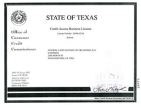How Do Interest Rates Work?
In an economy where credit plays a major role, interest rates can seem to go up and down at random. But is it random? What causes that change? How do interest rates work?
When you’re looking to borrow money, interest rates play an important part in the process. Keep reading as we explore some of the facts behind interest rates—then see the team at CashMax for a variety of quick, convenient lending options to provide the cash you need today!
What Is Interest?
Put simply, interest is the price you pay for borrowing money.
Consumers borrow money from a lender to enjoy the luxury of spending now, rather than having to wait and save up. In exchange for the service of lending the money, whether through an actual cash loan or through a credit card, the lender makes a profit by charging interest.
Interest is a percentage charged on the sum a consumer borrows. For example, if you borrow $2,000 at an annual interest rate of 10 percent, you will pay $200 in interest charges for that borrowed money in a year’s time. This interest charged is an amount you must pay in addition to paying back the $2,000 borrowed from the lender.
Whenever money is loaned, there is always a risk that the borrower may not pay it back. Typically, the lower a borrower’s credit score, the higher the interest rate they will be charged, as their low credit score indicates they are at a higher risk for defaulting on the loan based on past credit history.
How Are Interest Rates Determined?
While the ups and downs of interest rates may seem random to a consumer, they are actually influenced by the United States Federal Reserve.
When interest adjustments are made in the federal funds rate, or the rate at which banks can borrow money from the Federal Reserve, those interest changes trickle down to affect the entire economy.
If the Fed lowers the federal funds rate, for instance, that means banks can borrow money for less, which allows the banks, in turn, to lower the interest rates they charge consumers. If the federal funds rate goes up, the opposite effect happens and consumer interest rates increase.
